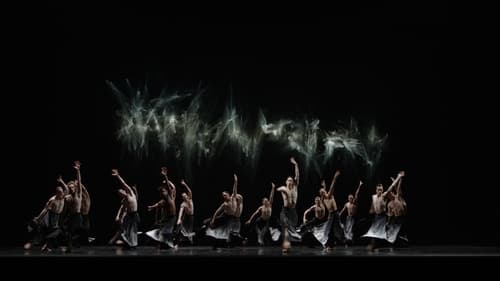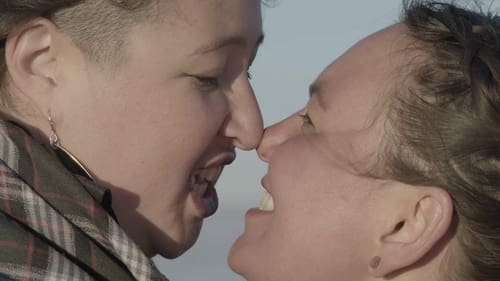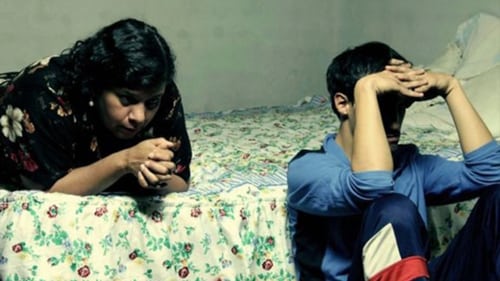
Cinematography
Ana, Claudia y Marinela, tres mujeres latinoamericanas, comparten sus experiencias íntimas como inmigrantes en Canadá mientras reflexionan sobre temas como la violencia, la pertenencia, la maternidad y la reconciliación.

Cinematography
Crystal Pite and the artists of the National Ballet return to the stage to remount the critically acclaimed Angels’ Atlas after a nearly two-year shutdown due to the pandemic. Crystal Pite: Angels’ Atlas grants audiences unprecedented access into Pite’s creative process, through intimate rehearsal footage and candid interviews, as the film builds towards an emotional opening night marking the National Ballet’s first performance onstage at the Four Seasons Centre for the Performing Arts after lockdown.

Director of Photography
Ever Deadly weaves concert footage with stunning sequences filmed on location in Nunavut, seamlessly bridging landscapes, stories and songs with pain, anger and triumph—all through the expressions of Tanya Tagaq, one of the most innovative musical performers of our time.

Director of Photography
Ramón, an 8-year old Mexican kid, week after week, practices kickboxing with care and passion. After much training, Ramón is finally participating in his first national championship. At the end of the fight and for the first time in his life, Ramón will learn the meaning of winning and losing a match.

Director of Photography
Bright and beautiful, 17-year-old Adelaida enjoys a comfortable family life with her parents in an apartment in Bogotá. But soon the cracks begin to show through the veneer of this picture perfect family.

Director of Photography
El plano de apertura es revelador: una mujer viaja de noche sin que se diga, ni tampoco importe, de dónde viene o adónde va; se trata de un plano de casi dos minutos y medio, con la cámara prendida al rostro de Alejandra. En él ya encontramos las claves para entender el universo creativo propuesto, con un guion que trabaja más situaciones que hechos, y que deja que cada una de esas situaciones tenga su propio desarrollo en el interior del plano. Eso explica el limitado número de escenas, alrededor de una veintena, resueltas casi todas con uno, dos o tres planos. Lo otro es el poco interés por dar información completa al espectador, dejando zonas que conservan el misterio de eso que García Márquez llamó alguna vez la vida íntima. (FILMAFFINITY)

Director of Photography
On the outskirts of Valle del Conejo, Rafael stops the car and reveals he has kidnapped Daniel and has him inside the trunk of his car, both of them will go into the forest to deal with some personal issues.

Camera Operator
In a southern Mexico village, young deaf students are taking on an unusual challenge: to make a movie out of their dreams. While Eric and his friends watch films and discuss ideas, their dreams begin to work their way into the documentary itself. Both a study of the students lives and the basic visual language of film

Director of Photography
When Gabino's father returns home after a long absence, the two men awkwardly attempt to re-establish a relationship; but Gabino and his mother quickly tire of this man who has become a stranger to them and decide to kick him out, before realizing that he has already left. Gabino eventually tracks his father down and spends time with him in his rundown apartment, trying to figure out if there is any possibility for the two of them to ever truly communicate. Though Greatest Hits continues Pereda's exploration of his perennial themes of absence, masculinity and the difficulty of maintaining a family, it opens up a whole new set of aesthetic questions through a bold formal gambit: halfway through, the entire narrative reboots and starts from scratch with another actor playing one of the key characters, leading to different iterations of events already witnessed.

Director of Photography
Un film único, "El verano de Goliath" derriba las fronteras entre ficción y documental para retratar las vidas reales de los nativos de la zona rural de Huilotepec. Utilizando tanto entrevistas como escenas recreadas, y a través de la historia de Teresa, una mujer que busca a su marido desaparecido, Pereda se adentra en profundidad y con astucia en las especificidades del entorno y sus habitantes. Y lo consigue desenterrando las emociones que predominan en este pueblo empobrecido: la sospecha, el odio y el miedo gobiernan las interrelaciones en esta intrigante comunidad.
En 2008 Pereda dirigió un premiado cortometraje, Entrevista con la tierra, que está en el origen de Verano de Goliat, una continuación estilística que llega a reaprovechar una escena de aquel cortometraje.

Director of Photography
Carefully shot in black and white, All Things Were Now Overtaken by Silence is a meditation on the filming of a strange play: a fascinating monologue by actress, director, performance artist and political activist Jesusa Rodriguez of Sor Juana Ines de la Cruz’s poem First I Dream.

Director of Photography
An itinerant mover works from the streets of Mexico City with his partner and lives with his beleaguered mother. A heightened tension within the home – by the absent older brother and unmentioned father. Gabino's casual pursuit of a career is interrupted by a series of intense and almost satirically telenovela-esque domestic vignettes.

Director of Photography
Gabino, Luisa and Paco share a small apartment in Mexico City. With no money and nothing to do they decice to leave the city.

Director of Photography
Vicente (Gabino Rodríguez) is a young farmer in a rural village who scrapes by while taking care of his ill grandmother. Several of Vicente’s uncles intend to their ailing mother’s land without her knowledge. Vicente seeks help from the municipal president who, between shooting hoops on a desolate court, tells him that if he wants justice, he must head to the capital to meet with government officials. Although he hasn’t seen her since he was a child, Vicente sets off in search of his mother, who works as a maid in maze-like Mexico City. With the help of his mother’s employer, a sophisticated middle-aged woman, he finds the government offices where he presents his case. His situation isn’t easily resolved, especially since he does not have the deed to his grandmother’s plot of land, and Vicente finds the complexities of the legal system to be completely overwhelming.













